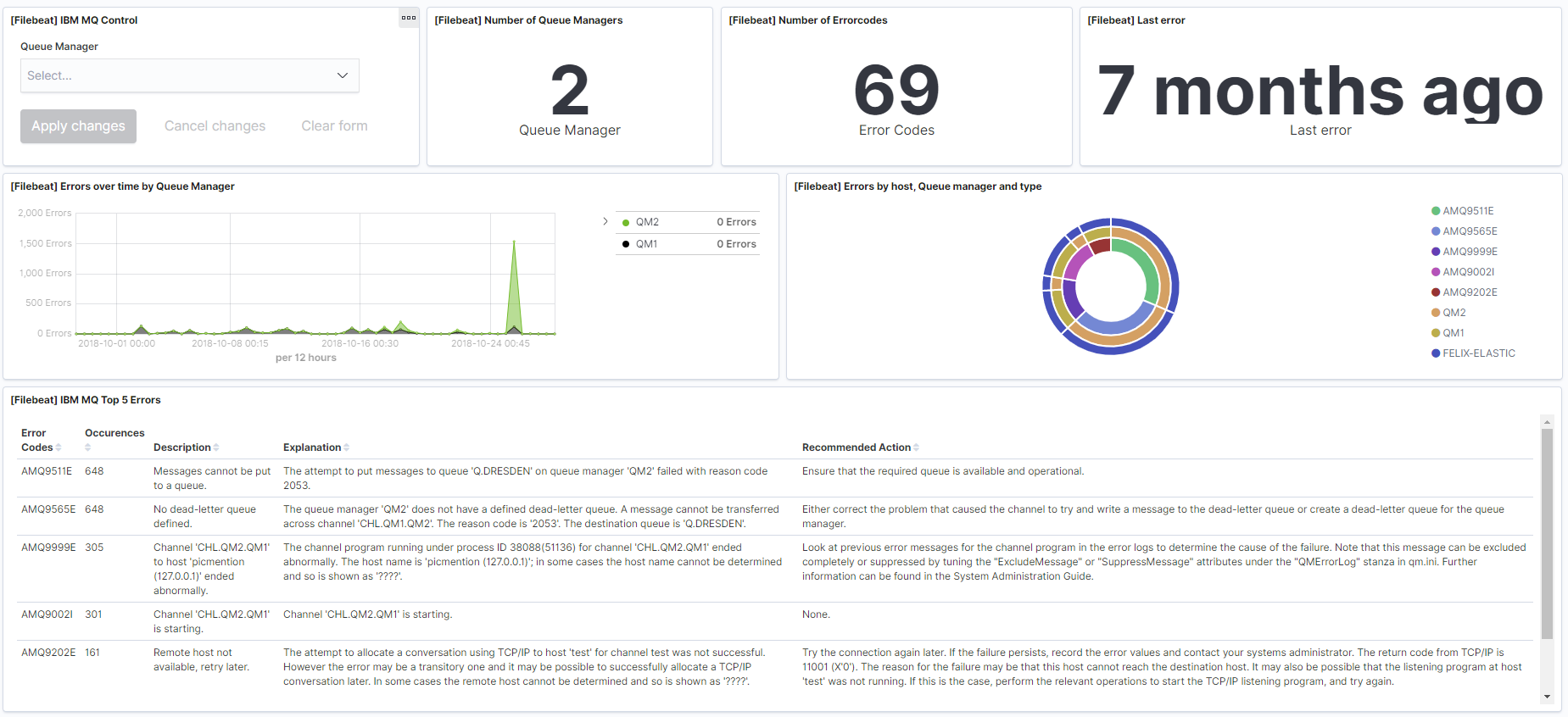IBM MQ module
editIBM MQ module
editThe ibmmq module collects and parses the queue manager error logs from IBM MQ in the standard format.
When you run the module, it performs a few tasks under the hood:
- Sets the default paths to the log files (but don’t worry, you can override the defaults)
- Makes sure each multiline log event gets sent as a single event
- Uses ingest node to parse and process the log lines, shaping the data into a structure suitable for visualizing in Kibana
Read the quick start to learn how to set up and run modules.
Compatibility
editThis module has been tested with IBM MQ v9.1.0.0, but it should be compatible with older versions.
Configure the module
editYou can further refine the behavior of the ibmmq module by specifying
variable settings in the
modules.d/ibmmq.yml file, or overriding settings at the command line.
The following example shows how to set paths in the modules.d/ibmmq.yml
file to override the default paths for IBM MQ errorlog:
- module: ibmmq
errorlog:
enabled: true
var.paths: ["C:/ibmmq/logs/*.log"]
Variable settings
editEach fileset has separate variable settings for configuring the behavior of the
module. If you don’t specify variable settings, the ibmmq module uses
the defaults.
For more information, see Configure variable settings. Also see Override input settings.
When you specify a setting at the command line, remember to prefix the
setting with the module name, for example, ibmmq.errorlog.var.paths
instead of errorlog.var.paths.
errorlog fileset settings
edit-
var.paths -
An array of glob-based paths that specify where to look for the log files. All
patterns supported by Go Glob
are also supported here. For example, you can use wildcards to fetch all files
from a predefined level of subdirectories:
/path/to/log/*/*.log. This fetches all.logfiles from the subfolders of/path/to/log. It does not fetch log files from the/path/to/logfolder itself. If this setting is left empty, Filebeat will choose log paths based on your operating system.
Example dashboard
editThis module comes with a sample dashboard. For example:

Fields
editFor a description of each field in the module, see the exported fields section.